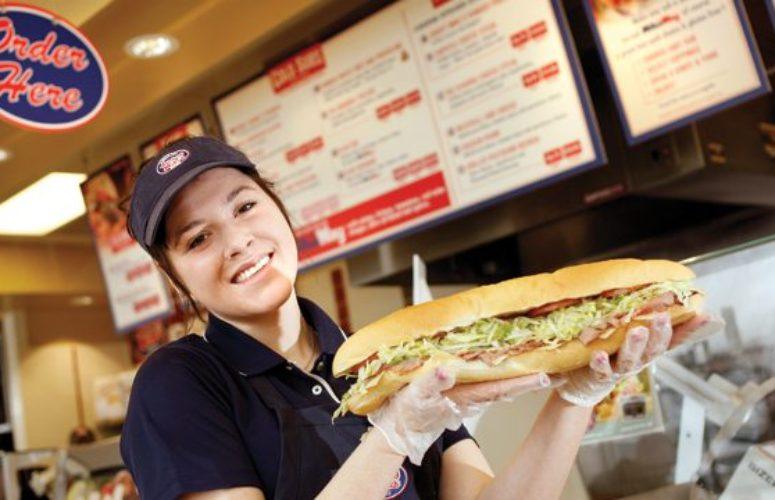
Taking the Franchise Route
NJ Small Business Guide
By Jennifer L. Nelson, Contributing Writer On Nov 3, 2014For aspiring entrepreneurs, investing in a franchise with a tried-and-true business model can take some of the guesswork out of starting your own business, and provide a built-in network of support from both your franchisor as well as fellow franchisees. “Unlike opening your own independent business, a good franchise should already provide a proven business model, a wealth of expertise in everything from location to daily operations, to a brand that automatically provides a competitive edge,” says William G. Connolly, partner at Riker Danzig, with locations in Morristown and Trenton.
However, aspiring business owners also have to do quite a bit of their own homework when it comes to choosing their franchise. “If you’re considering investing in a franchise concept, the most important thing to do is determine if it’s a good fit for you — and if you’re a good fit for them,” asserts Adam J. Siegelheim, a franchise attorney with Stark and Stark in Lawrenceville and Marlton. That might mean taking a hard look at your financial situation to ensure that you can meet the cost requirements for a particular franchise opportunity, he adds.
But when it comes to making a decision about investing in a franchise, it’s about more than money. Siegelheim suggests identifying your personal skills and interests and researching a wide variety of concepts until you find the right fit. “You have to pick something you’re passionate about, and that fits your personality,” he says. “If you don’t like dogs, you don’t buy a doggy daycare, and if you’re not a morning person, you don’t invest in a coffee shop.”
According to John Helm, a multi-unit owner of Jersey Mike’s Subs franchises, aspiring franchise owners should search for a concept that resonates with them on a personal level, such as Jersey Mike’s reputation for giving back to the community. “Keep searching for one that means more to you than just bottom line dollars … that’s what will lead to long-term success,” he says.
Moreover, potential franchise owners have to know exactly what running a particular franchise concept is going to demand; some may require a higher level of sales skills than others, for example. Franchisees also need to understand what they’ll be required to do on a day-to-day basis in order for their business to remain profitable. “Someone might like working with kids, so they invest in a children’s-based concept only to discover that the majority of their time is actually spent dealing with marketing or human resources issues, or fielding concerns from parents,” Siegelheim says. “You need a full understanding of the business and your day-to-day responsibilities before you sign on the dotted line.”
According to Helm, among the best ways to begin your search is speaking to other franchisees to ask questions and learn more about what they do. “Don’t cut short your due diligence,” he advises. “It’s critical that you get to know your franchisor and the people who run the organization, but also to interview as many franchisees as possible to get comfortable with both sides of the franchise.”
Potential franchise owners can also glean a better idea of what works — and what doesn’t — in a particular region by studying the success of other franchises when making decisions about how to market or operate their business. “It will help you determine the potential strengths and weaknesses of your competitors, and at the same time, you’ll learn how their performance might translate to your business,” Connolly adds.
After investing in a franchise, business owners then have to navigate a slew of decisions, from hiring staff to choosing a location. “Know your market and wait for great locations, because there’s always another deal around the corner,” Helm says. “And you want to make sure you have great people to grow with.”
However, choosing a location can be just the tip of the iceberg; what many franchisees may not anticipate is just how many rules might be associated with opening and operating their business. “There’s a strict set of rules for everything in a franchise, from how the store should look to the vendors you can use to regulations for employees … franchise contracts come with a soup-to-nuts set of rules that can feel restrictive,” Connolly explains.
On top of getting to know their franchiser, aspiring franchisees are best served when consulting a professional who can comb through their contracts and help navigate the nuances involved with investing in a franchise. “There are unique risks that come with buying a franchise; if you open up a donut shop and ultimately decide to do something else, you can sell your business and move on … but in a franchise, it’s not always so easy to recover your investment,” he adds. Franchise contracts typically include everything from paying fees based upon revenues to non-compete clauses that make it difficult to do business in the same area if the franchise ultimately proves unsuccessful.
“The misconception is that if you buy a franchise, all you need to do is open the door and money will come flowing in … but even the most well-known franchises require a lot of work, from networking and marketing to establishing your business in the community,” Siegelheim concludes. “But a franchise does come with systems and a business model that, at a certain point, becomes battle-tested and proven … so if you pick the right franchisor with a viable, proven concept, you put yourself in position to succeed.”
Related Articles:





